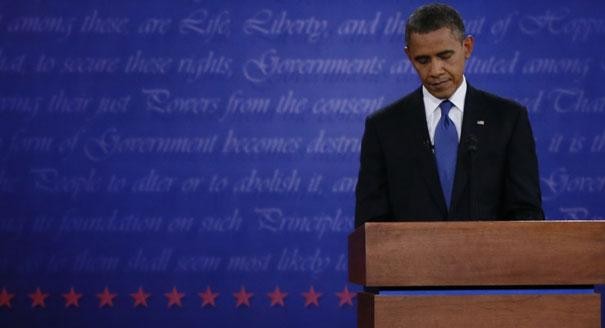The auditorium of the Vasco Smith county building was full, as it normally is when there’s a controversy to be resolved or an appointment to be competed for. In the case of the Shelby County Commission’s regular public meeting on Monday, both conditions pertained.
Given that most of the attendees were on hand to boost the chances of one of three candidates to fill a Probate Court vacancy (and most of those to support candidate Kathleen Gomes), someone suggested leapfrogging down the commission’s agenda to Item 19, the court appointment of an interim judge to replace retiring judge Robert Benham.
The candidates, all lawyers, were Gomes, who boasted many years’ experience trying cases in Probate Court; state senator Jim Kyle, who heads the diminished band of Democrats in the state Senate; and former Shelby County commissioner Julian Bolton.
Gomes was nominated by Heidi Shafer, Kyle by Sidney Chism, and Bolton by Walter Bailey. As befitted the turnout on her behalf, Gomes had the most testimonies by audience members. Bolton’s mother and sister spoke on his behalf. Kyle spoke to his “30 years making decisions in the public realm” and his “ability to work with everybody.”
Commissioners also toasted their favorites. Chris Thomas noted that he himself was a Republican while Gomes was a Democrat and touted that fact as proof that his preference had nothing to do with politics. The claim generated a laugh line when Chairman Mike Ritz, also a GOP member but one increasingly inattentive to the party line, said straight-facedly to the more avowedly partisan Thomas, “Oh, you’re a Republican?”
In speaking for Kyle, Commissioner Terry Roland also made the claim that his choice was above politics. All the candidates were “equally qualified,” said Roland, but, “Me and this gentleman [Kyle], we go way back … [pause] to Ophelia Ford days.” That was a reference to the Senate’s consideration of a contested special state Senate election in 2005, one eventually resolved in favor of Democrat Ford and against Republican Roland.
Roland said Kyle had not “done right” by him then. But since? “I’ve got to know his heart … have come to respect this gentleman, immensely. I’m throwing my support to Jim Kyle.”
As was fairly well known before Monday’s meeting, and was explicitly volunteered by Roland in a conversation before the meeting, Tennessee lieutenant governor Ron Ramsey, the state Senate speaker and a staunchly conservative Republican, had endorsed Democrat Kyle and had made a point of communicating the fact.
It was less well known, except in Democratic Party circles, that something of an understanding — or at least a hope — existed that Kyle’s Senate seat, if vacated, might be awarded by the commission at some point to former state senator Beverly Marrero, who was defeated in last year’s Democratic primary by Kyle in the district they both shared after GOP-controlled redistricting.
The Senate-appointment issue, in any case, was the source of a sore spot that developed during the voting. After the first ballot, Kyle had six of the seven votes needed, Gomes had four, and Bolton had two. Bailey, who had committed to Bolton on the first ballot in homage to his ex-colleague, quickly announced he was switching his vote to Kyle, giving him seven votes and, for the space of a few seconds, making him the apparent probate judge-designate.
Then occurred what is surely the most awkward and potentially embarrassing moment in the commission career of Democrat Steve Mulroy, a Kyle voter on the first ballot. Immediately upon Bailey’s switch, Mulroy announced his own. Instead of voting for Kyle, he would pass.
Mulroy later said that he had made no promises to Kyle and had voted for him on the first ballot as a courtesy but had always anticipated voting for Gomes in what he expected would be some subsequent ballot. Whatever Mulroy’s motives, his action was, to say the least, an eyebrow-raiser, and he had best not be expecting a place on Kyle’s Christmas card list this year.
This was the second time in a two-year span that Kyle had suffered a sudden reverse at the hands of a fellow Democrat on the commission. In 2011, he had applied for the position of interim member of the Unified School Board, just then being appointed by the commission, and was within a vote of victory when Democrat Justin Ford decided to cast his vote for Republican Kevin Woods, Kyle’s opponent and, thereby, the victor.
It should be noted that Mulroy was not the only Democrat ultimately recorded as voting for Gomes. So were Melvin Burgess and Henri Brooks.
• Brooks would figure as one of the principals in another surprising development Monday, and this one, too, had some importance. This was regarding a resolution authorizing the payment of some $103,889.28 to the lawyers engaged by the commission to litigate the ongoing school-merger controversy. This is the kind of vote that normally, with all 13 members voting, gets an 8-5 outcome, with the supporters of school merger in the majority and opponents, mainly suburban members who support municipal school districts, in the minority.
This time the resolution failed, however, getting only six of the seven votes needed for passage. The vote was taken in the immediate aftermath of a philippic made by Brooks against Chairman Ritz, a merger supporter, whom she accused of speaking to her rudely. Whether for that reason or some other, Brooks abstained from voting. And Democrat Bailey, another merger supporter, was temporarily out of the chamber.
Presumably, the commission will have opportunities to vote again on the matter at a subsequent meeting.
• The other major development at Monday’s meeting was the commission’s vote, by the aforesaid 8-5 margin — seven Democrats plus Ritz versus five Republicans — to approve an ordinance, on third and final reading, to exempt from Shelby County residence requirements all of the erstwhile Memphis City Schools teachers coming into the new county system via merger.
Another ordinance, proposed by Millington’s Roland, a vehement foe of merger, would have authorized a referendum on the issue of revising the county charter so as to eliminate the residency requirements for all county employees. To reject this ordinance after passing the preceding one would be “hypocrisy,” said Roland, who went on to say, “I know a lot of people in Nashville. Surely you wouldn’t want the legislature to see this.”
When his proposal went down 8-5 (though with a different mix of ayes and nays than usual), Roland, who has taken to suggesting with increasing intensity and frequency that he, in effect, sits at the right hand of Ron Ramsey, thundered that the legislature might be brought to overrule the commission’s previous vote to enlarge the permanent Unified School Board from seven to 13.
• The Tennessee General Assembly was, however, moving quickly toward a scheduled mid-April adjournment, and, though school legislation favored by Shelby County’s suburban municipalities — bills to enable municipal schools and private-school vouchers, among others — still had some hoops to pass through, they seemed headed toward final passage this week or next.
In a longish chat with reporters last week, Ramsey made the case for the legislature’s current pell-mell progress toward adjournment as a matter of recovering what had once been the norm. Ramsey also strongly advocated legislation, now scheduled for consideration in the assembly’s final week, that would allow the nomination of U.S. Senate candidates by party caucuses in the legislature rather than, as at present, in open public primaries.

